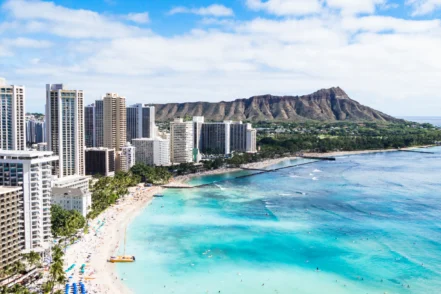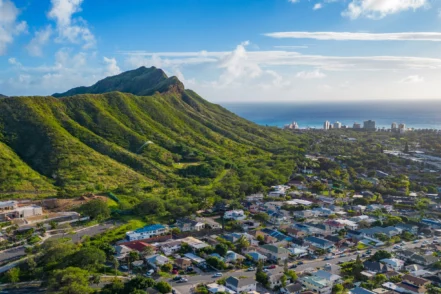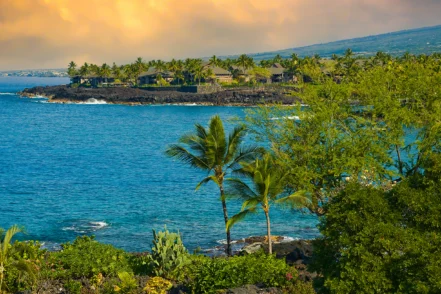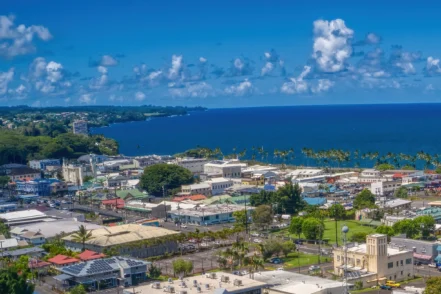All Wahiawa Addiction Treatment Centers
-
Wahiawa Medical Building
302 California Avenue, Suite 212
Wahiawa, Hawaii 96786Treatment Programs
- Dual Diagnosis
- Young Adult Rehab
- Adult Program
- +3
Insurance
- Medicaid
- Private insurance
- +4
-
Army Substance Abuse Program ASAP Honolulu
344 Heard Street, Building 556
Honolulu, Hawaii 96857Treatment Programs
- Drug Rehab
-
Army Substance Abuse Program ASAP Schofield Barracks
Stop 129 Kolekole Avenue, Building 2091
Schofield Barracks, Hawaii 96857Treatment Programs
- Alcohol Rehab
- Dual Diagnosis
- Opioid Addiction
- +7
Insurance
- Financing available
- Military insurance
- +1
-
Hina Mauka Teen Care Mililani Middle School
95-1140 Lehiwa Drive
Mililani, Hawaii 96789Treatment Programs
- Alcohol Rehab
- Dual Diagnosis
- Opioid Addiction
- +4
Insurance
- Financial aid
- Free
-
Kaiser Permanente Behavioral Health
94-1480 Moaniani Street
Waipahu, Hawaii 96797Treatment Programs
- Alcohol Rehab
- Dual Diagnosis
- Opioid Addiction
- +4
Insurance
- Medicaid
- Private insurance
- +2
-
YMCA of Honolulu Waipahu High School
94-1211 Farrington Highway
Waipahu, Hawaii 96797Treatment Programs
- Alcohol Rehab
- Dual Diagnosis
- Young Adult Rehab
- +2
Insurance
- Financing available
- Free
- +1
-
YMCA of Honolulu Waialua High and Intermediate School
67-160 Farrington Highway
Waialua, Hawaii 96791Treatment Programs
- Alcohol Rehab
- Dual Diagnosis
- Mens Rehab
- +2
Insurance
- Financing available
- Free
- +1
-
Hina Mauka Teen Care Highlands Intermediate School
1460 Hoolaulea Street
Pearl City, Hawaii 96782Treatment Programs
- Alcohol Rehab
- Drug Rehab
- Young Adult Rehab
- +2
Insurance
- Free
-
Hina Mauka Waipahu
94-216 Farrington Highway, Suite B2-306
Waipahu, Hawaii 96797Treatment Programs
- Alcohol Rehab
- Dual Diagnosis
- Drug Rehab
- +4
Insurance
- Self-pay options
- Private insurance
- +1
-
New Horizons
66-138 Walikanahele Rd
Haleiwa, Hawaii 96712Treatment Programs
- Alcohol Rehab
- Opioid Addiction
- Drug Rehab
- +5
Insurance
- Self-pay options
-
VA Pacific Islands Health Care System Leeward CBOC
91-2135 Fort Weaver Road, Suite 501
Ewa Beach, Hawaii 96706Treatment Programs
- Dual Diagnosis
- Adult Program
- Senior Rehab
- +5
Insurance
- Military insurance
- Medicaid
- +6
-
Women In Need Aiea
98-939 Moanalua Road
Aiea, Hawaii 96701Treatment Programs
- Alcohol Rehab
- Dual Diagnosis
- Adult Program
- +3
Insurance
- Medicaid
- Self-pay options
- +4
-
Aiea Medical Building
99-128 Aiea Heights Drive
Aiea, Hawaii 96701Treatment Programs
- Dual Diagnosis
- Young Adult Rehab
- Adult Program
- +3
Insurance
- Medicaid
- Private insurance
- +4
-
Hina Mauka Teen Care Waianae
85-165 Plantation Road
Waianae, Hawaii 96792Treatment Programs
- Alcohol Rehab
- Drug Rehab
- Mens Rehab
- +2
Insurance
- Free
-
Hoomau Ke Ola
85-761 Farrington Highway, Suite 101
Waianae, Hawaii 96792Treatment Programs
- Alcohol Rehab
- Dual Diagnosis
- Opioid Addiction
- +6
Insurance
- Medicaid
- Private insurance
- +3
Other Nearby Cities
Top Drug Rehab Centers in Hawaii
-
 Hawaii
HawaiiHoomau Ke Ola
85-761 Farrington Highway, Suite 101 Waianae, Hawaii 96792
Treatment Programs
- Alcohol Rehab
- Dual Diagnosis
- Opioid Addiction
- +6
-
 Hawaii
HawaiiBobby Benson Center
56-660 Kamehameha Highway Kahuku, Hawaii 96731
Treatment Programs
- Alcohol Rehab
- Dual Diagnosis
- Opioid Addiction
- +5
-
 Hawaii
HawaiiKu Aloha Ola Mau Honolulu
1130 North Nimitz Hwy, Suite C-302 Honolulu, Hawaii 96817
Treatment Programs
- Alcohol Rehab
- Dual Diagnosis
- Opioid Addiction
- +6
-
 Hawaii
HawaiiHawaii Island Recovery
75-170 Hualalai Road, Suite C 311-A Kailua-Kona, Hawaii 96740
Treatment Programs
- Alcohol Rehab
- Dual Diagnosis
- Opioid Addiction
- +4
-
 Hawaii
HawaiiLokahi Treatment Center Hilo
400 Hualani Street, Building 10-195-B Hilo, Hawaii 96720
Treatment Programs
- Alcohol Rehab
- Drug Rehab
- Young Adult Rehab
- +3
-
 Hawaii
HawaiiThe Ohana Addiction Treatment Center
75-5915 Walua Road Kailua-Kona, Hawaii 96740
Treatment Programs
- Drug Rehab
- +-2
-
 Hawaii
HawaiiBig Island Substance Abuse Council 297 Waianuenue Avenue
297 Waianuenue Avenue Hilo, Hawaii 96720
Treatment Programs
- Alcohol Rehab
- Dual Diagnosis
- Opioid Addiction
- +4
-
 Hawaii
HawaiiHope Services Hawaii
357 Waianuenue Avenue Hilo, Hawaii 96720
Treatment Programs
- Alcohol Rehab
- Dual Diagnosis
- Opioid Addiction
- +3
-
 Hawaii
HawaiiHabilitat Kaneohe
45-035 Kuhonu Place Kaneohe, Hawaii 96744
Treatment Programs
- Alcohol Rehab
- Opioid Addiction
- Drug Rehab
- +4
-
 Hawaii
HawaiiThe Exclusive Hawaii Hakalau
31-631 Old Mamalahoa Hwy Hakalau, Hawaii 96710
Treatment Programs
- Alcohol Rehab
- Dual Diagnosis
- Opioid Addiction
- +4
